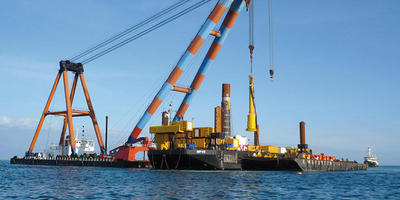
Postgraduate studies ForWind Academy
Postgraduate studies at ForWind Academy
The on-the-job postgraduate studies at ForWind Academy prepare participants for the wind energy sector. Project engineer Tim Brunert reports on his experience:
Mr. Brunert, you are currently taking postgraduate courses in “Wind energy technology and management” at ForWind Academy, the centre for research in the wind energy sector of the universities Oldenburg, Hannover and Bremen. What was your reason to take up this particular further education?
I have strong personal interest in renewable energies, and in every day work demands to planning in the offshore-wind energy sector are increasing. It is therefore important to me to deepen my expert knowledge in this field. The support of my employer also played an important role in the decision making process. Apart from project work tailor-made training of employees is essential in order to get ready for cutting-edge technical and high-quality realisation of projects. I like to compare the extension of know-how to agriculture: The farmer fertilizes his fields in order to raise the crop. In addition to further technical qualification the course offers the opportunity to me and thus to the company to actively participate in the networking of a constantly growing industry.
What are the focal aspects?
The three major components of the course are 1. Special technical skills (wind energy technology, planning and funding, law), 2. Key qualifications (teamwork, presentation skills, evaluation) and 3. Capacity to act (project management, utilisation of standard tools, due diligence). These three components are made direct use of in a practical example. Divided into three teams of eight students each and supported by experts we may plan our first offshore wind farm. We have to calculate the available wind energy potential, apply for necessary approvals, determine the dimensions of the farm, choose the type of windmills and develop a funding and marketing concept. To make it even more complicated we have to cope with the fact that roughly once in four weeks we have only two to four hours to coordinate within the group. For the remaining time we are dependent on telephone conferences and emails. Here we have to make first use of our newly acquired project management tools.
The on-the-job course of studies requires a lot of commitment from your side. How can you combine daily work and studying?
Fridays and Saturdays. Sure, additional work and an increased measure of self-discipline are required and one has to cut down some other things. I try to get many things done during weekends, but also in the evenings one can spend some hours on it. And after all: It’s fun and an investment into my future. So far my project work in the office has not been affected and in case there is an overlap, the management is supporting and understanding. In the end one has to learn to set priorities.


